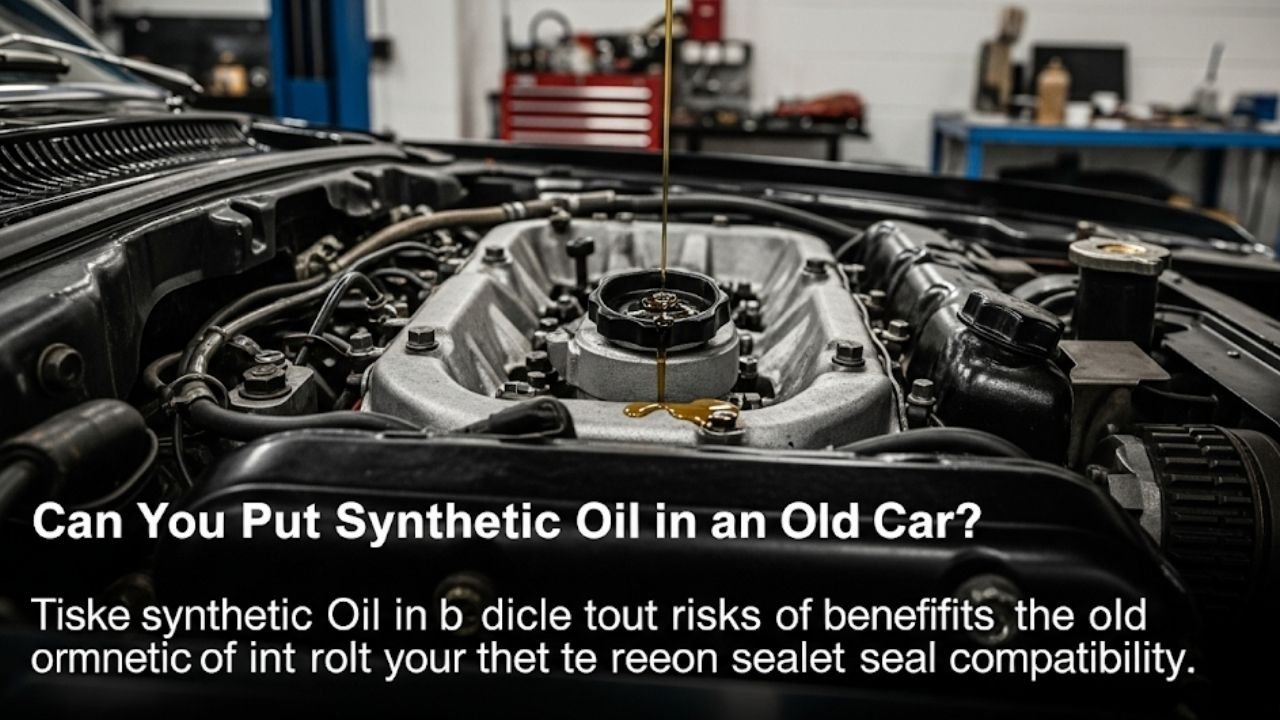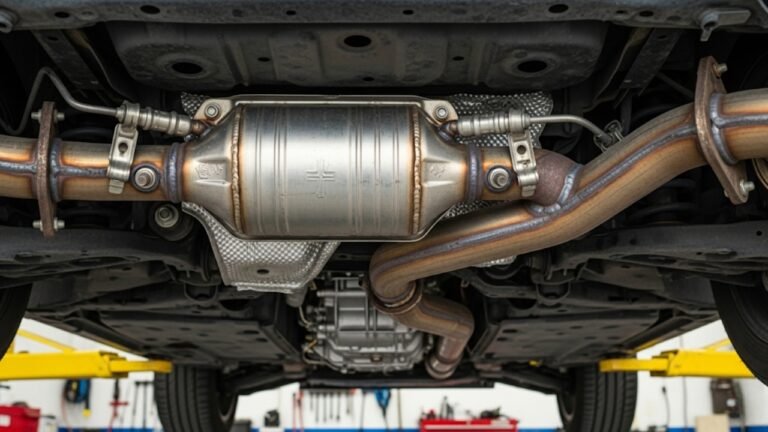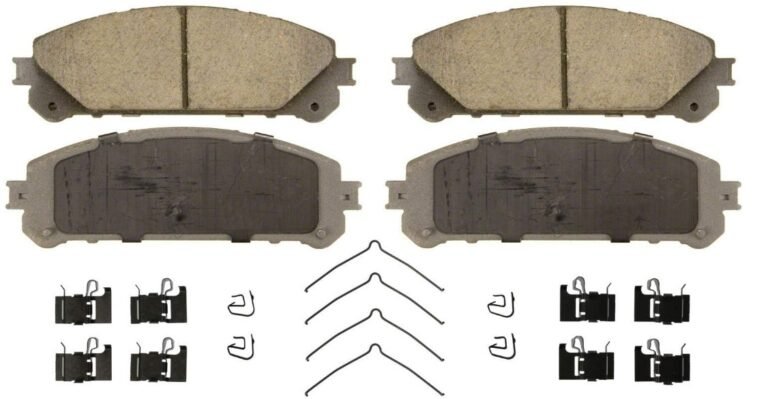Can You Put Synthetic Oil in an Old Car?

You know the drill—your old car starts making a faint ticking noise, or maybe it just feels like it’s working harder than it should. Someone suggests synthetic oil, but you’re not sure. Can you put synthetic oil in an old car without doing any harm? It’s a question that stirs up worry, especially if you’ve been driving the same car since cassette tapes were still cool.
This guide is here to clear the air. No confusing jargon, just straight talk. We’ll walk through what synthetic oil really is, how it interacts with older engines, and whether it’s the right move for your trusty ride.
And yes, we’re talking to you—the daily commuter with a 2001 Toyota Corolla, the weekend cruiser with a ‘93 Mustang, or anyone who just loves their old car like it’s part of the family.
Understanding Synthetic Oil: What Makes It Special
First, let’s break down what synthetic oil even is. It’s not a lab experiment gone rogue—it’s actually a highly refined lubricant engineered to be better than traditional oil. Think of it like filtered coffee compared to instant. Same base idea, but one’s just cleaner and more effective.
Synthetic oil:
- Lasts longer than conventional oil
- Flows better in cold weather
- Protects against engine wear
- Keeps your engine cleaner
Unlike old-school mineral oil, it doesn’t break down as quickly. This means fewer oil changes and better performance. But if your car rolled off the line before smartphones were a thing, this might raise eyebrows.
So can you put synthetic oil in an old car? Let’s keep peeling that onion.
Why People Worry About Using Synthetic Oil in Older Engines
We get it. There’s a myth floating around that synthetic oil causes leaks in old engines. It’s one of those stories that refuses to die, like the one about gum staying in your stomach for seven years.
Here’s the deal: older engines have more wear and tear. The seals inside might be brittle or worn. Because synthetic oil is more slippery (thanks to its uniform molecules), it can sometimes slip through cracks where conventional oil might not.
But that doesn’t mean it causes leaks. It just reveals the ones that are already there.
Also, today’s synthetic oils are made with seal conditioners. That means they actually help revitalize aging seals, reducing the chance of new leaks and improving oil longevity.
Key takeaways:
- Synthetic oil doesn’t cause leaks—it exposes weak spots.
- If your seals are in decent shape, you’re probably fine.
- A gradual transition can help ease concerns.
Real-Life Experience: I Switched My 1999 Honda Civic to Synthetic
Let’s get personal. I drove my 1999 Honda Civic for nearly 12 years, and for the first five, I stuck to conventional oil because that’s what the manual said. But once I crossed 150,000 miles, a friend (who’s also a mechanic) suggested trying synthetic.
At first, I hesitated. “Can you put synthetic oil in an old car like mine?” I asked.
He looked me dead in the eye and said, “Dude, it’ll be fine. Just watch for leaks.”
I made the switch, kept an eye on the driveway for spots—nothing. In fact, the engine ran smoother. It didn’t overheat as often in traffic, and my fuel economy even ticked up slightly. After that, I never looked back.
What Happens When You Put Synthetic Oil in an Old Car?
Let’s walk through what might happen when you switch:
| Possible Outcome | What It Means |
|---|---|
| Engine runs smoother | Synthetic flows better at all temps |
| Better fuel efficiency | Less resistance = better MPG |
| Cleaner engine | Detergents in synthetic clean out old gunk |
| Minor leaks appear | Existing weak seals exposed (not caused by synthetic) |
| Longer time between oil changes | Synthetic lasts longer—sometimes twice as long |
This isn’t a magic fix, but it’s close. Especially if you’re tired of frequent oil changes and want your car to last longer.
When You Shouldn’t Use Synthetic Oil in an Old Car
Alright, let’s be honest—not every car should jump on the synthetic train.
Here are a few scenarios when you might hold off:
- Your car burns oil already. Synthetic might burn faster in engines with blow-by issues.
- Severe oil leaks. If you’re already using a quart a week, synthetic won’t help.
- Classic or collector cars. If your car uses flat tappet camshafts, you may need special high-zinc oils instead.
Always check your owner’s manual, and when in doubt, ask a qualified mechanic who knows your car model well.
The Right Way to Switch from Conventional to Synthetic
If you’re still wondering can you put synthetic oil in an old car without doing damage—yes, but do it thoughtfully.
Here’s a step-by-step:
- Do an engine flush (optional, but helps remove gunk).
- Use a synthetic blend for your first change.
- Watch for leaks or unusual noises.
- If all’s well, go full synthetic on your next oil change.
If you’ve gone hundreds of thousands of miles on dino oil, this approach gives your engine time to adjust. Think of it like switching from fast food to home-cooked meals—you ease into it.
Benefits of Using Synthetic Oil in Older Vehicles
Here are some bullet points that make synthetic oil worth considering for your vintage ride:
- Better engine protection against wear and tear
- Improved performance in both cold and hot weather
- Extended oil change intervals (less maintenance hassle)
- Helps remove engine sludge built up from years of conventional oil
- Increased fuel efficiency and smoother idle
And yeah, sometimes the car just feels better. It’s smoother, quieter, more alive. Like it’s saying thank you.
Busting the Myths: What People Get Wrong About Synthetic Oil
There’s a lot of outdated info out there, and it keeps good folks from doing what’s best for their engines. Let’s clear the air.
Myth 1: Synthetic Oil Is Too Thin for Old Engines
Truth: While synthetic oil flows better (especially in cold temps), it’s not “too thin.” It meets the same viscosity standards as conventional oil. So, if your car needs 10W-30, synthetic 10W-30 works just the same—just more efficiently.
Myth 2: Synthetic Oil Will Ruin Seals
Truth: Modern synthetic oils come with seal conditioners that help maintain rubber flexibility. Unless your seals are already shot, you’re not at risk.
Myth 3: You Can’t Mix Synthetic and Conventional Oil
Truth: You can! Most synthetic blends are just that—a mix of synthetic and conventional. It’s not ideal long-term, but mixing them won’t damage anything.
Myth 4: Older Cars Don’t Need Synthetic Oil
Truth: They may not “need” it, but they can benefit. If your engine’s in good shape, synthetic oil can help it run smoother and last longer—especially if you drive in extreme temps or sit in traffic often.
Bottom line? Don’t let old-school myths stop you from giving your car a modern upgrade.
Top Synthetic Oils That Work Great for Older Cars
If you’ve decided to go synthetic, picking the right brand can feel overwhelming. Here’s a breakdown of some trusted names:
| Brand | Why It’s Good for Older Cars |
|---|---|
| Mobil 1 High Mileage | Designed for engines over 75,000 miles. Fights leaks, reduces wear. |
| Castrol GTX Magnatec | Offers great cold-start protection with magnetic additives. |
| Valvoline MaxLife | Specifically made for high-mileage engines; has seal conditioners. |
| Pennzoil Platinum High Mileage | Made from natural gas, very clean, and includes anti-wear additives. |
Always match the viscosity grade (like 5W-30 or 10W-40) to what your car’s manual recommends.
Mechanic’s Insight: What the Pros Are Saying
We called up a few experienced mechanics to get their two cents on the big question: Can you put synthetic oil in an old car?
Here’s what they had to say:
Carlos, 20+ years in auto repair:
“Honestly, I recommend it all the time. As long as the engine isn’t leaking like a sieve, synthetic oil can give an older car new life.”
Lina, performance shop tech:
“I’ve seen smoother idle, fewer oil top-offs, and better fuel efficiency when people switch. But I always warn them to look out for leaks in the first couple weeks.”
Dev, independent mechanic in a small town:
“If someone’s car is burning oil or pushing 300k miles with zero rebuilds, I tell them to stick with what works. Otherwise, synthetic is usually an upgrade.”
So while it’s mostly a green light, getting a quick inspection or oil system check can be smart before switching.
FAQs: Let’s Answer What You’re Probably Still Wondering
1. Can you put synthetic oil in an old car with high mileage?
Yes, especially if the engine is in decent shape. Use high-mileage synthetic oils—they’re made to protect older engines and maintain seals.
2. Will switching to synthetic oil damage my old engine?
No. It won’t cause damage unless your engine already has serious issues. In most cases, it’ll run better and cleaner.
3. What happens if I switch back to conventional oil later?
No harm done. Your engine doesn’t “get used to” one oil type. You can switch back and forth as needed, although consistency is preferred.
4. Is synthetic oil worth the extra cost for an old car?
If you plan to keep the car for a while or want fewer oil changes, absolutely. It can reduce wear and tear over time.
5. Should I flush my engine before switching?
Not required, but a gentle flush can help. It removes sludge that might get loosened by synthetic oil’s detergents.
6. How do I know if my engine has leaks before switching?
Look for oil spots where you park. Check around valve covers and oil pans. If unsure, get a mechanic to inspect for you.
7. Is synthetic oil better in cold weather for old cars?
Yes! It flows faster at startup, which means less wear during cold mornings—a big win for older engines.
8. Can synthetic oil help my engine last longer?
Yes, especially if you maintain regular changes. It protects better against heat, sludge, and friction—all enemies of engine longevity.
Final Verdict: Should You Make the Switch?
If you’re still asking, “can you put synthetic oil in an old car?”—the honest answer is yes, in most cases.
Synthetic oil is like giving your car a new lease on life. It’s smoother, cleaner, and just plain better at protecting what matters. Sure, it might cost a bit more upfront, but it can save you in repairs, oil changes, and engine issues down the road.
And let’s be real: older cars deserve love. They’ve stuck with us through late-night drives, weekend road trips, and traffic jams that tested our patience. Giving them the best oil is just one way we return the favor.
So if your old ride still has some fire in the belly, synthetic oil might just help it roar a little longer.




